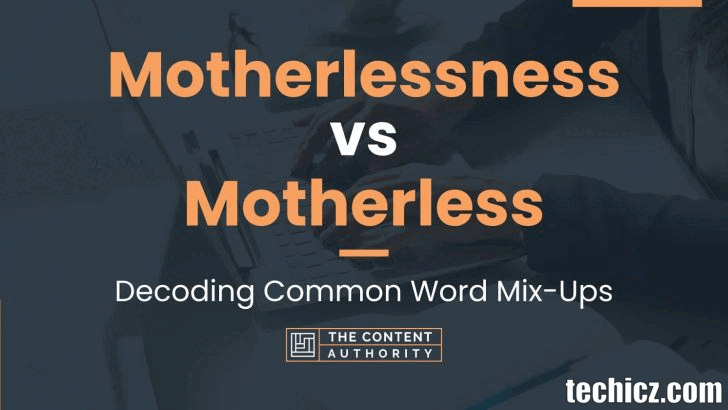 Understanding Motherless
Understanding Motherless
Losing a motherless is a profound and deeply personal experience that can have a lasting impact on an individual’s life. Whether it occurs suddenly or after a prolonged illness, the absence of a mother can leave a void that is difficult to fill.
Impact of Losing a Mother
The loss of a motherless can have significant emotional, psychological, and even physical effects on those left behind. From feelings of grief and sadness to a sense of abandonment and confusion, the impact can vary widely from person to person.
Coping Mechanisms
In the face of such a loss, it’s essential to find healthy ways to cope and navigate through the grieving process.
Seeking Support from Family and Friends
One of the most crucial steps in coping with the loss of a mother is reaching out to loved ones for support. Whether it’s a shoulder to cry on or someone to talk to, having a strong support system can make all the difference during this difficult time.
Professional Counseling
In addition to leaning on friends and family, seeking professional counselling can provide valuable guidance and support. A trained therapist can help individuals work through their grief, process their emotions, and develop coping strategies for moving forward.
Self-care Practices
Taking care of oneself is essential when dealing with the loss of a mother. Engaging in activities that bring comfort and solace, such as exercise, meditation, or spending time in nature, can help soothe the soul and promote healing.
Finding Strength
Despite the pain of loss, many individuals find strength and resilience in the face of adversity.
Embracing Memories and Legacy
One way to honour a mother’s memory is by cherishing the moments shared and preserving her legacy. Whether it’s through photographs, keepsakes, or sharing stories with loved ones, keeping her memory alive can provide comfort and solace.
Cultivating Resilience
While the pain of losing a mother never fully goes away, many individuals find that they grow stronger and more resilient as a result of their experiences. Through adversity comes growth, and learning to navigate life without a mother can be a powerful catalyst for personal development.
Honouring the Memory
Finding ways to honour and remember a mother can be an essential part of the grieving process.
Celebrating Special Occasions
Whether it’s her birthday, Mother’s Day, or another significant milestone, finding ways to celebrate and honour a mother’s memory can help keep her spirit alive in our hearts.
Creating Rituals
Establishing rituals or traditions in her memory can provide comfort and solace for those left behind. Whether it’s lighting a candle, visiting her favourite place, or planting a tree in her honour, finding meaningful ways to commemorate her life can bring solace and healing.
Impact on Different Stages of Life
The loss of a mother can have unique implications at different stages of life.
Motherless Children
For children who lose their mothers at a young age, the absence can be particularly challenging to navigate. From missing out on maternal guidance and nurturing to grappling with complex emotions, the loss can shape their lives in profound ways.
Motherless Adults
Even as adults, the absence of a motherless can continue to impact individuals in various aspects of their lives. From milestones like marriage and parenthood to everyday moments that evoke memories of her presence, the loss can be keenly felt throughout adulthood.
Community Support
Finding support within a community of others who have experienced similar losses can be invaluable in the grieving process.
Online Support Groups
The internet offers a wealth of resources for those grieving the loss of a mother, including online support groups and forums where individuals can connect with others who understand their pain and offer support and encouragement.
Local Support Networks
In addition to online resources, many communities offer local support groups and counselling services for those grieving the loss of a loved one. These networks can provide a safe space for individuals to share their feelings, receive support, and find comfort in knowing they are not alone.
Conclusion
Losing a mother is a profound and deeply personal experience that can leave a lasting impact on an individual’s life. While the pain of loss may never fully go away, there are healthy ways to cope, find strength, and honour her memory. By seeking support from loved ones, engaging in self-care practices, and finding meaningful ways to remember her, individuals can navigate the grieving process with resilience and grace.
Unique FAQs:
Q1: Is motherlessness only caused by the death of a mother?
A: No, motherlessness can result from various situations, including death, abandonment, or strained relationships.
Q2: How can I support a friend or family member who is motherless?
A: Offering empathy, being a good listener, and providing practical support can make a significant difference to someone who is motherless.
Q3: Are there online communities specifically for motherless individuals?
A: Yes, there are several online support groups and forums where motherless individuals can connect with others who share similar experiences.
Q4: Can therapy help individuals cope with the loss of a mother?
A: Yes, therapy can provide a safe space for individuals to process their emotions, gain insight, and develop coping strategies for dealing with motherlessness.
Q5: How can society be more supportive of motherless individuals?
A: Society can foster empathy and understanding by acknowledging the experiences of motherless individuals, promoting inclusive communities, and challenging stigma and stereotypes.
